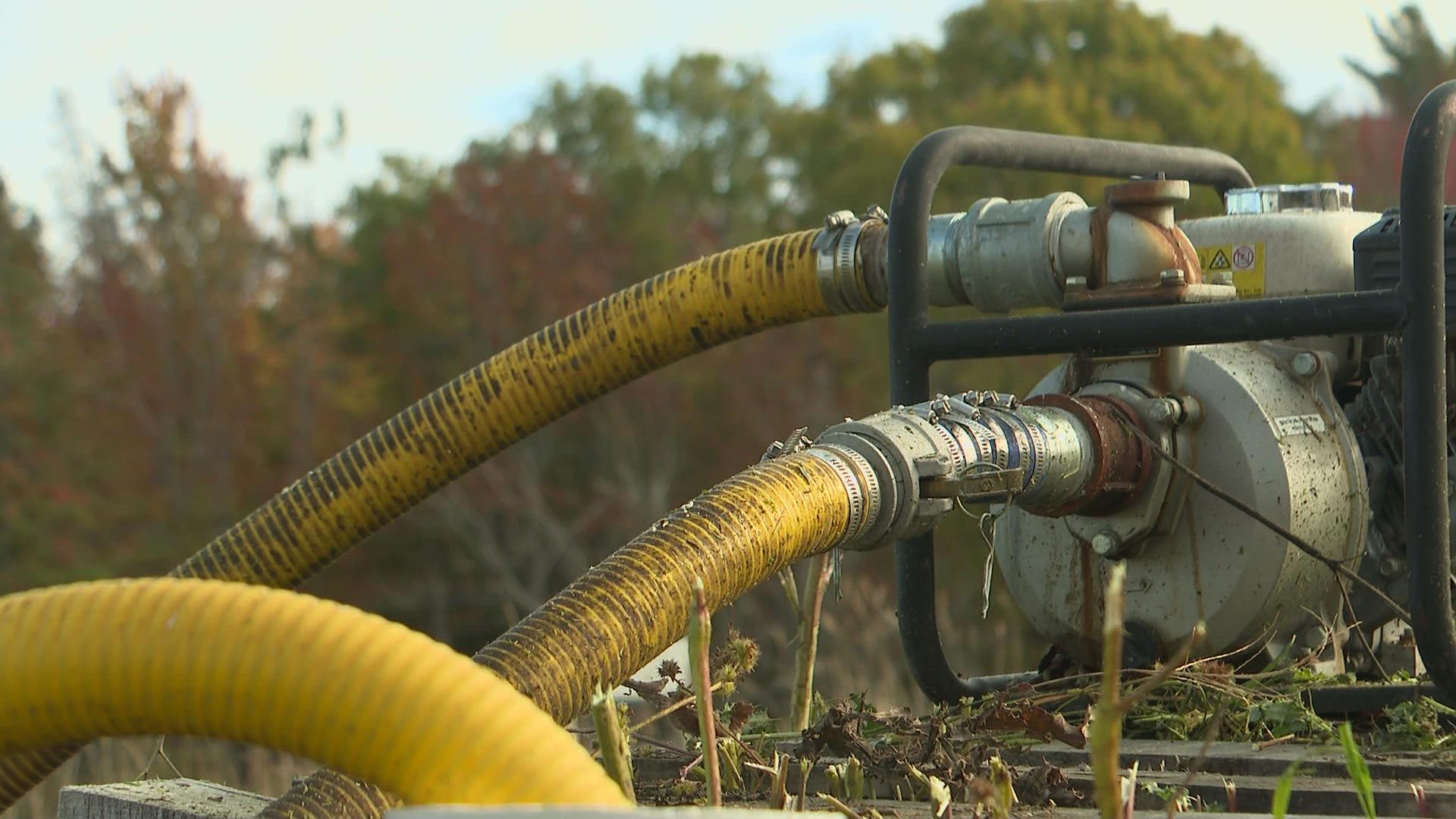MAINE, USA — The University of Maine is conducting a study to examine how a new shallow water well design, which was originally created for residential use, can benefit local farmers in a changing climate with an increased likelihood of drought conditions.
Joseph Ayotte, a hydrologist at the U.S. Geological Survey (USGS) New England Water Science Center, first created this well when he found iron and arsenic in his own well water supplies on his property and experimented with a new design that could be bacteria-free.
"I've been using it for a number of years very effectively through droughts, it's arsenic-free, it's bacteria-free, and it's been overall very reliable," Ayotte said.
Ayotte has since shared his well design format with others to utilize for themselves. This is how Andrew Toothaker, co-owner of Hart Farm in Holden, discovered that this well may be a solution to a problem he was facing on his farm.
Toothaker bought the 160-acre farm with his wife just two years ago.
"The very first year that we were here, we have all these historic hand-dug wells that are, you know, 20 feet deep, literally dug by hand, that all just totally went dry with the drought," Toothaker said.
As mixed vegetable and livestock farmers, Toothaker said they needed a long-term, sustainable well solution that was also affordable.
"Usually if you're digging a drilled well it would be big lengths of pipe casing, which are really expensive, especially right now," Toothaker added.
He said when he learned about this new well design through the Maine Organic Farmers and Gardeners Association (MOFGA), he decided to install it himself last year.
Wells are designed to capture water that flows underground. Ayotte said traditional deep wells can sometimes be thousands of feet deep and use about three-foot diameter tiles, which he added can be very effective. But the tiles can also come with challenges.
"Because they're three feet in diameter, especially around the bottom, there's very little opportunity for water to enter the well as designed," Ayotte said.
Ayotte's shallow well design has a much wider surface area, is roughly 20 feet deep, and uses crushed rocks in its reservoir instead of tiles. All of these factors combined allow for it to capture more water than deep wells.
Rachel Schattman, assistant professor of sustainable agriculture at UMaine, is now conducting a study to take a closer look at how these shallow wells can support local farmers.
"One of the things that farmers in the northeast are starting to struggle with more and more is drought and dry periods, especially in the later part of the summer," Schattman said.
Schattman said Toothaker allowed her to install test wells around his shallow well to study its effectiveness.
"What this will allow us to do is look at how water moves through the soil profile during different periods, so during dry periods and wet periods, to understand how the shallow well affects the greater water resources," Schattman said.
The study at Hart Farm is part of a collaboration with UMaine and USGS, with support from the U.S. Environmental Protection Agency's Region 1 (New England).
Though still in its early stages, Schattman said the results at Hart Farm following this past summer's dry conditions show promise.
"They were successfully able to irrigate off of this well reliably through the drought, which is anecdotal, but also points in a really exciting direction," Schattman explained.
Toothaker added the well has proved to be capable of doing a lot with a little.
"If you have even the tiniest amount of rain, you can pump 6,000 gallons all day long," Toothaker said.
Investing in technologies that can handle a variety of climate conditions is becoming a crucial component in creating more resilient farms.
"Being millennials getting into farming, there's no guaranteed success for us, you know, we have to make that happen and so being more resilient in everything that we do is really, really important," Toothaker said.
If you're a local farmer interested in digging a shallow well and sharing its data with UMaine researchers, contact Rachel Schattman at rachel.schattman@maine.edu.

